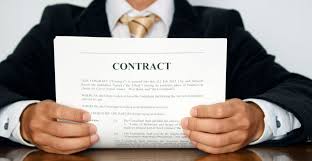Transfer of a property on Curacao

Thought of a home on Curacao
After a lot of planning, it’s finally happening! ‘The transfer’, but what a transfer exactly entails is not clear to everyone. If you are going to buy your first home, many things are new to you and you have no idea what is involved. In this article I explain exactly how a transfer of a home in Curacao goes exactly.
House transfer: what exactly is it?
In most cases, the transfer when buying a home is nothing more or less than the official ownership of that home. During the transfer, the house usually officially changes owner. However, there are a small number of exceptions where this is different, but I will go into that later. Switching owners is the last process when buying a home, this is an important moment after this you are in many cases tied to a mortgage, taxes and all other additional obligations after this you can say I am the owner of the house.
When is the transfer?
The transfer of a home on Curacao usually takes place 3 to 6 weeks after obtaining an agreement for a mortgage loan. If there is a question of full own contribution, you can assume 3 to 6 weeks after signing the provisional purchase agreement.
The transfer of an existing home
If you buy an existing home, the transfer consists of two phases. First, a final inspection takes place at the house and then the transfer is signed at the notary.
Home inspection
Before you go to the notary, you go to the house together with the selling party to check whether everything has been delivered as agreed.
- Perhaps you have taken over a number of things, such as curtains, refrigerator, furniture, etc. Then of course you also check whether that is all in order.
- Also make sure that all spaces are empty. Of course you don’t want to clean up the seller’s stuff before you can move into your home.Also check whether all agreements, such as remedying any defects, have been remedied.
- Pass at the notary
if the house has been delivered completely according to the agreement, you go to the notary for the official part: passing the deed. Both the buyer and the selling party or any authorized representative thereof are present. The notary himself is also there. Sometimes it is the case that one of the two parties cannot be present, for example because they are on vacation or have already moved abroad. In that case, the notary can be authorized. In that case, a signature must be signed for the transfer and of course costs are also involved. Usually there is no direct representative of the mortgage lender present at the transfer but is represented by an employee of the notary’s office.
Before you finally receive that coveted bunch of keys, you have another important task ahead of you: signing the deed of transfer and the mortgage deed.
- With the signing of the deed of delivery, also known as the deed of transfer, the house officially changes owner. The notary reads this deed in its entirety and, if desired, provides an explanation, or sometimes an abbreviated version. If he has subsequently placed the exact date and time under the deed of delivery, the buyer and seller can also sign. After this you are the new owner of the house.
- Are you taking out a mortgage for this home? Then you also sign the mortgage deed at the notary, with which you take out a loan for which your home is the collateral. With this signature you are therefore entering into a major financial obligation. As soon as you have signed this deed, the notary will pay the purchase price of the house directly to the seller of the house.
The transfer of an apartment
Have you bought an apartment? As soon as it has been passed at the notary, the seller is no longer a member of the Association of Owners (VvE), but you are. Logical too, because the seller is then no longer the owner. If the previous owner is in arrears with the VvE, you as the new owner are not liable for this. This is neatly recorded by the notary. The VvE will therefore have to solve any problem with the old owner.
The transfer of a new-build home
If you buy a new-build home on Curacao, this usually takes place in 2 phases first you buy the land, this goes through the notary, this is the same procedure as with a home, then you usually pay for the construction of a home if you get financing through a bank then there is usually a supervisor who checks whether payment is made for the part that has been delivered.
Are your insurances in order?
Before you sign the mortgage deed at the notary, you must have arranged a number of insurance policies. The mortgage lender makes this mandatory because your home is the collateral for your loan. You can take out these insurances quickly and easily via dushi insurance.
The transfer costs money
After reading this article you have gained more insight into how a transfer of a home on Curacao goes, of course, the transfer also entails costs. I write about this subject in my article cost transfer property on Curacao.

This article was written by Adriaan Smit buying and selling real estate agent on Curacao.
If you would like to know more about this subject or if you have other Curacao real estate related questions, please feel free to contact me at adriaan@sunlife.realty
You can also visit our Facebook and Instagram pages to have a look at our latest listings.
Categorieën: development curacao, News, real estate agent Curacao
Tags: best real estate agent in curaco, buying curacao home, help with selling curacao home, home for sale curacao, notary curacao, purchasing home curacao, real estate agent on curacao, real estate agents on curacao, selling home curacao, transferring home, transferring home safely
